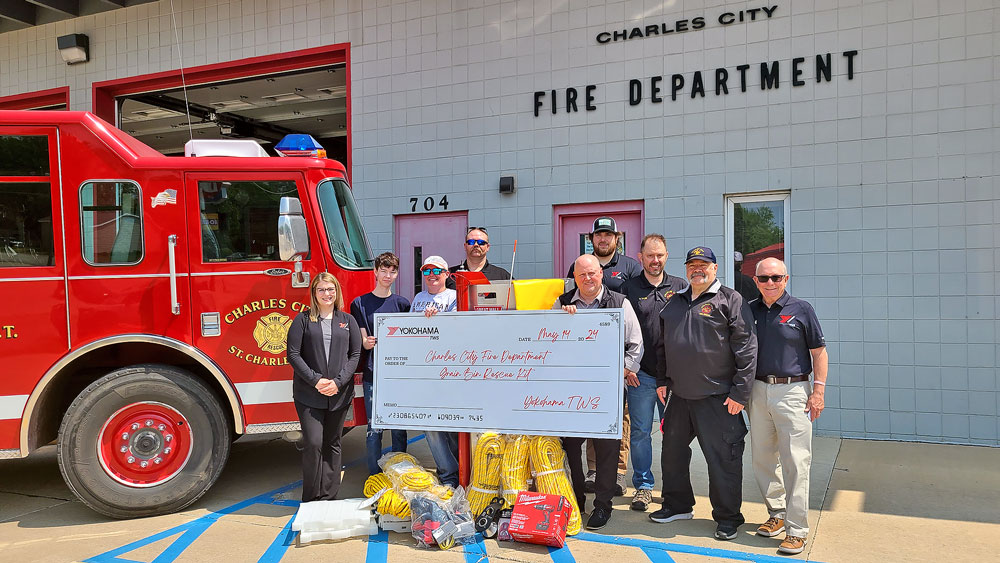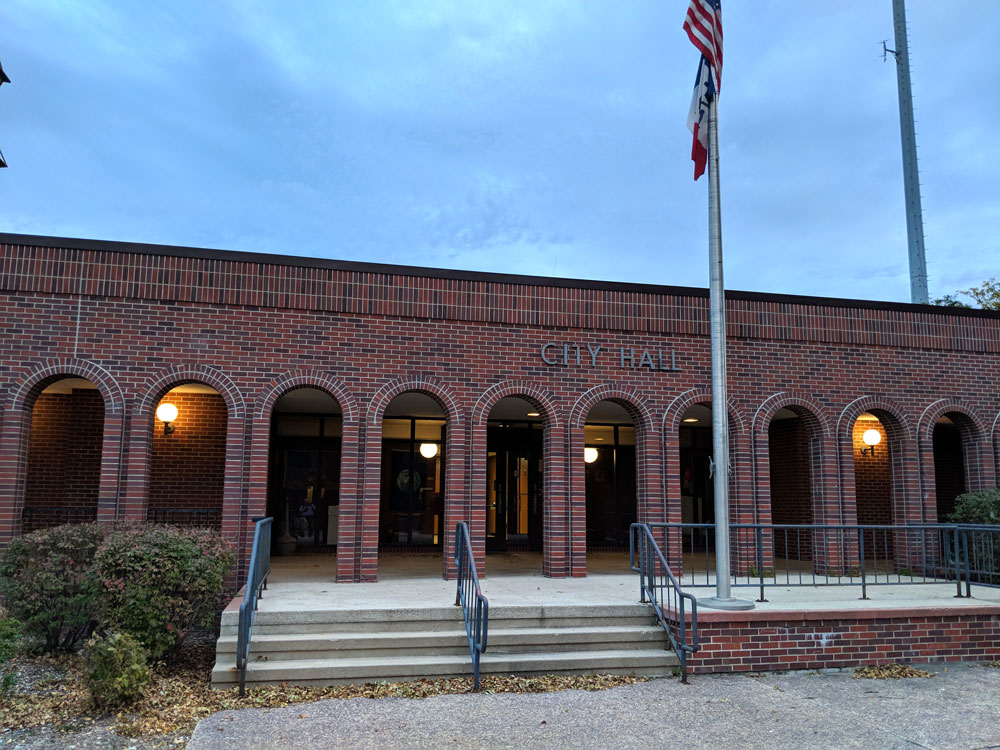Former and current supervisors challenge Floyd County’s legal efforts on pipeline projects
By Bob Steenson, bsteenson@charlescitypress.com
The chair of the Floyd County Board of Supervisors defended the board’s decision to hire an attorney to represent the county regarding carbon dioxide pipeline projects, and defended the use of federal COVID relief funds to pay the legal fees.
The issue came up at the board’s meeting this week as the first bills from Ahlers & Cooney law firm in Des Moines were among the claims.
A former supervisor questioned the use of American Rescue Plan Act (ARPA) funds to pay for the legal battle, and a current supervisor said he wasn’t convinced the board was making the right decision.
Those bills were for $1,116, representing Floyd County’s one-quarter share of $4,464 to be split among Floyd, Emmet, Kossuth and Shelby counties, which are jointly represented by the law firm; and for $6,379.26 for services provided just to Floyd County, for a total of $7,495.26.

The Board of Supervisors on a 2-0-1 vote on Jan. 9, with Supervisor Jim Jorgensen abstaining, approved hiring the law firm to represent it in intervening before the Iowa Utilities Board when it is making decisions on the Summit Carbon Solutions and Navigator CO2 projects, including the use of eminent domain, and also to help the county write a new zoning ordinance that would cover hazardous liquid pipelines location in the county.
Summit and Navigator have each proposed projects that would include burying carbon dioxide transport pipelines in Floyd County.
“I’m convinced we’re doing the right thing,” said Supervisor Chair Mark Kuhn, who has said one of his primary concerns is the potential of the Summit pipeline to go through the Avenue of the Saints Development Park in the southern part of Charles City and threaten the marketability of that state-certified economic development property.
Regarding the bills from the law firm, Kuhn said, “That’s how it works. We’re paying to preview drafts and, if applicable, negotiate ordinances and resolutions. … They’re advising the county on legal and regulatory matters.”
But Supervisor Jorgensen expressed some disagreement with the direction the county was going.
“I’m not convinced we’re doing the right thing,” he said, referring to efforts to prevent the pipeline from going through the economic development park and noting that it would follow the path of two natural gas pipelines that already go through the park.
Jorgensen said there’s a chance, as carbon sequestration becomes more important regarding climate change, that any company locating in the development park may want to hook up to the Summit line so its own carbon dioxide can be captured.
Kuhn referred to a letter that Tim Fox, the executive director of the Charles City Area Development Corp., which owns the Avenue of the Saints Development Park, had written to the Iowa Utilities Board, saying that the pipeline would be detrimental to the park and potentially dangerous to other population areas that it would pass by in Charles City. The Area Development Corp. board approved sending the letter to the Iowa Utilities Board.
Linda Tjaden, who was at the meeting this week and who had been a county supervisor for six years until the new board took over at the beginning of the new year, wondered if the new board had considered the other things that it might be able to do with the ARPA funds instead of using them to fund a legal battle.
“Do you know for sure the total amount?” Tjaden asked. “Do you know this is the max amount you are going to be spending for attorney fees? Do you know that, or is this ongoing?”
“It’s ongoing,” Kuhn said, but added that the county had received “pretty good” estimates of the potential cost.
Ahlers & Cooney attorney Tim Whipple had estimated that the cost to develop a zoning ordinance would be $6,000 to $10,000, and the cost to intervene in the Iowa Utilities Board process could be up to $100,000 for each pipeline docket, but that would be divided among four counties for the Summit pipeline and among five counties for the Navigator pipeline.
“I just want to say, I think it’s worth the fight,” Kuhn said. “I think it’s worth standing up for our economic development future to state that having the carbon dioxide pipeline through our development park, as stated by the board itself, is very detrimental to our economic future. … I’m very confident that this is something that I think is vital to our future. No, I can’t say how much this will cost in the end.”
The total amount the county received in ARPA funds is a little over $3 million. About half of that or more is planned to be used to pay to finish the Floyd County Law Enforcement Center (LEC) and courthouse updates project. Other funds have already been committed to a project to scan and preserve historical records in the County Recorder’s Office and County Auditor’s Office, and for Floyd County Conservation projects.
Tjaden said the officials who have been advising cities and counties on how to use the ARPA dollars have stressed that they should be used for lasting projects, ones where “the county can truly look at something in 10 years and say, ‘Wow, that’s where that money went.’”
Tjaden said the previous board had always planned to open up applications for ARPA funds for outside organizations in the county to see what kind of projects they would come up with, but didn’t get to that point before nearing the end of the year and deciding the new board should decide how to use the funds.
Kuhn said the new board was committed to using ARPA funds to complete the LEC and courthouse update project – which he said was taking far too long and was allowed to go way over budget – but that using that money rather than property taxes for the legal fees was also a legitimate use.
Tjaden said she just wanted to really urge the board to look at how it was using the funds and compare that to the other potential things they could be used for.
Kuhn said he was also going to propose using ARPA dollars for other expenses to avoid having to raise property taxes in the new fiscal year which begins July 1, because the new board needed to stop the practice of raising taxes every year.









Social Share